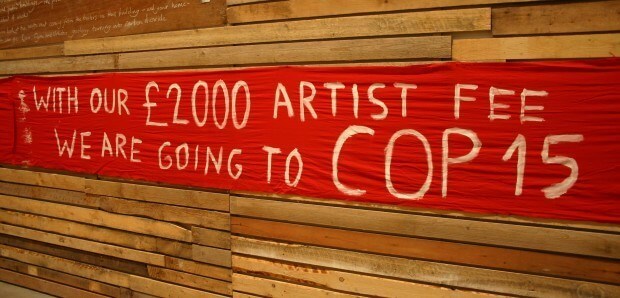 “The worst kind of business environment, mixed with moral manipulation,” was how a friend of mine described fundraising in a large charity.
“The worst kind of business environment, mixed with moral manipulation,” was how a friend of mine described fundraising in a large charity.
I sympathise with those fundraisers, because I’ve worked in fundraising teams with heavy bottom lines and sky-high targets. Producing high returns on investment is the constant pressure on fundraisers so it’s not surprising that the mantra in charity fundraising, is often, that it doesn’t matter how you get the money because it’ll be used for a good cause.
The last fundraising conference I went to was full of the language of business: we were told to “get investment ready” and “watch your competitors?” (The irony is that small and medium charities know as well as any business what fear of diminishing income feels like, as well as how to constantly innovate in response to the needs of stakeholders.)
However, emerging research is challenging this culture. Not only is the marketisation of campaigns and fundraising language morally dubious, it’s possibly undermining the very aims and work of the charities themselves. The sustainable and democratic societies required to help solve some of the worlds most pressing issues, won’t be built on the language of self-interest, fear and greed.
Fundraising language is a particularly tricky area. It’s about money for a start, a subject loaded with emotion and metaphor, “time is money/money can’t buy love.” Fundraising jargon is full of competitive and self-interested language: “segmenting the donor market/what’s in it for them?” Moving away from these traditions presents short-term risk for a fundraiser.
“What we do for ourselves dies with us; what we do for others remains and is immortal” Albert Pine
I’ve learned some interesting things over the years about funding and giving. Despite the creeping marketisation, altruism runs deep. You find out interesting facts: the poor give relatively more than the rich. Men and women have different giving habits. And research suggests time and again that the key reason people give to a charity is because they were asked. They also give for all kinds of other complex reasons, but overall, the core reason why people are giving to one charity rather than another, is probably because someone, usually a fundraiser, asked them to.
At Platform, as we embark on a new plan to increase our income from individuals, we’re discussing how to go about asking people to donate to us whilst using language and techniques that strengthen the intrinsic values of our organization.
We’re aiming to build up a community of Platform “sustainers” to help us raise £24,000 over the next year. We want to do this as honestly and inclusively as we can. What makes it so important is that donations from individuals enable us to do the more “risky” work and the regular income allows us to plan ahead with more confidence. We also know that a £5 per month donation represents more than the actual money- it’s represents commitment and deeper engagement from people who want to help, but might not have large sums of money at their disposal and helps democratise the world of “giving.”
We want to be as up front as possible about what we’re planning, so we’re starting with a series of meetings with some of our existing supporters to talk through our plans. We’ll follow this with series of regular appeals for donations, which we hope will be transparent and reflect the core values of Platform.
We’d really appreciate your views as we go along. And if you would like to set up a regular donation to Platform, we’d really appreciate it. You can donate here. Thank you.
